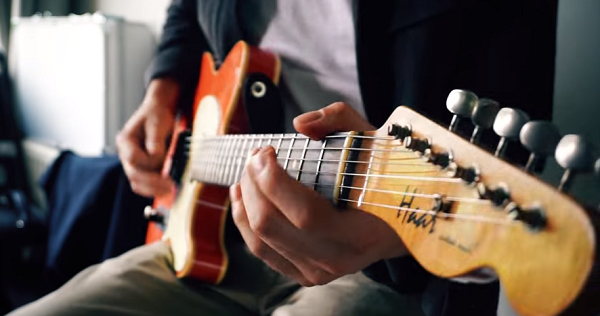
Imagine self-publishing a book on the world’s largest digital retail site, only to have another individual copy and upload the text, and the security algorithms on the platform mistakenly flag the original content as infringing on copyright guidelines. In this technocratic society, it’s easy if you try.
That’s exactly what transpired as a YouTube artist and guitar mentor Paul Davids found out the hard way that automated policing bots are prone to mistakes, after he received a startling and terse notice from the company stating that his very own musical creation was apparently in violation of itself. Well almost.
The BBC News shares the strange and disturbing of the sharing of inspiration in the electronic world leading to unforeseen consequences, while providing a peak into Pandora’s Box and a preview of future legal quandaries solved only by the monumental efforts of a crack legal team, and with million dollar stipulations.
Unbeknownst to Davids, a visitor to his YouTube streaming page allegedly took a liking to a guitar riff, downloaded the track and introduced various sound and production elements in turning the sample into a complete song The individual then uploaded the song to their own YouTube page, and in doing so created an tedious anomaly and logical loop that was obviously beyond the capabilities of the regulation bots.
Ironically, the majority of YouTube users fail to read the fine print of the “terms and conditions” in creating an account, and do not realize that once content is posted to the site, it is technically within the public domain, where enforcing copyright law is reduced to an ambiguously hazy and intricate legal interpretation of gray. Davids himself “covers” a multitude of famous guitar solos, and has ASCAP has probably not received a penny of royalties gained from the monetization of his online presence facilitated by the music.
Davids, who generates capital through an affiliate program with YouTube spurred by his 625,000 followers, and other profitable digital channel hosts should be asking themselves, do the rewards outweigh the risks in gaining legions of subscribers, yet leaving unique content precariously exposed to the whim of the internet? The phase shift in file sharing literally hit the fan with the viral growth of Napster, and now the status of properly regulating intellectual property hangs in the balance. As with the de-emphasis of privacy, does anyone care anymore as long as instant gratification is perpetually satisfied and the money is trickling in?
Society is a couple decades away from the very foundation of DNA being mercifully copied and uploaded in feeding frenzy sparked by digital piranhas, and the complete extinction of individual identity. The new catch phrase for the middle of the 21st century is, “Prove It.”
Read the BBC News story here.
